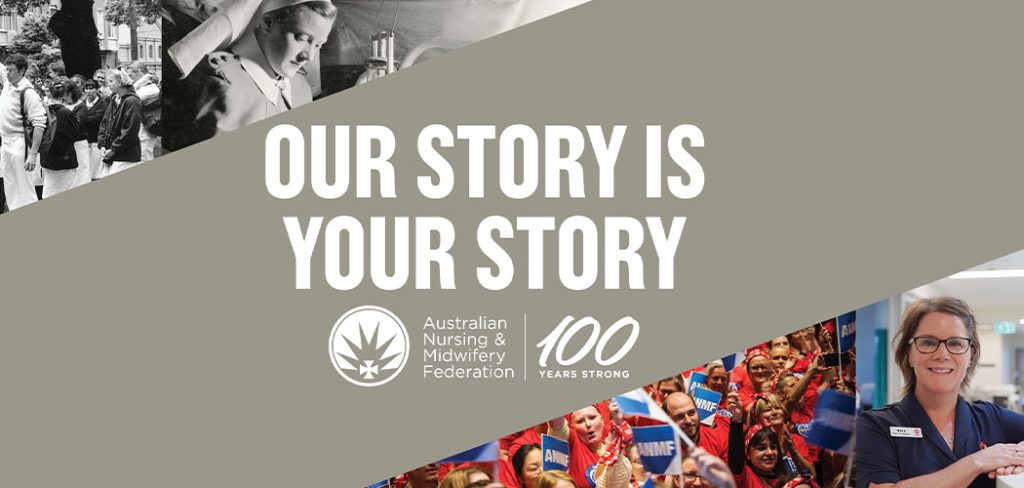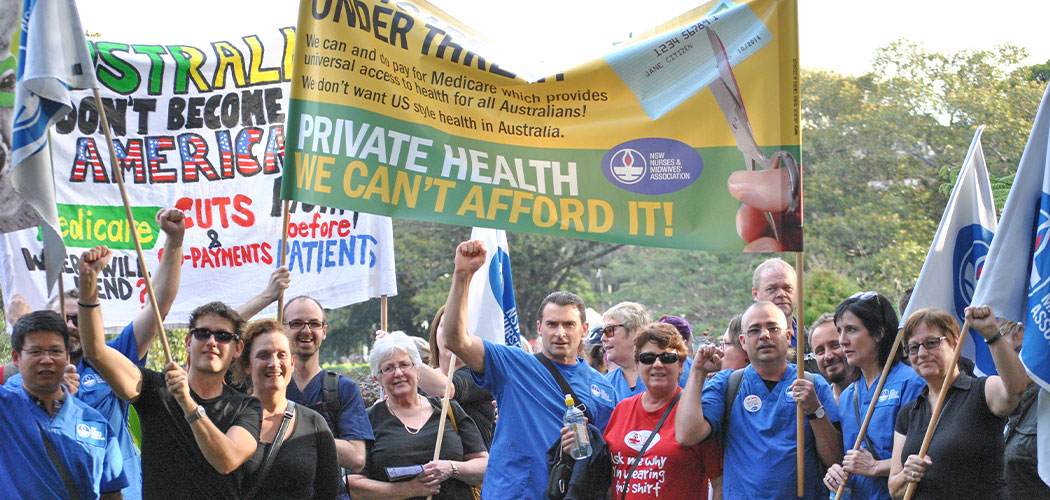The ANMF continues to be a powerful advocate for universal health coverage (UHC) in Australia, underlining the pivotal role nurses and midwives can play in ensuring all people have access to the healthcare services they need, when and where they need them, without financial hardship.
For example, the expansion of nurse-led and midwife-led clinics, such as free Walk-in Centres (WiC), are improving access and health outcomes and filling critical gaps in the health system. In these clinics, nurses and midwives lead care across a range of services including health assessments and treatment, chronic disease management, and mental health support.
“There’s a lot of incredibly skilled and intelligent nurses working across all areas of healthcare, and I believe this nurse-led model of care gives us the opportunity to utilise our skills and work to our full scope. We work autonomously and we’re cost-effective,” advanced practice nurse Kirsten Madsen, who works at a WiC in the ACT, told the ANMJ.
Another significant area of ANMF advocacy is the union’s ongoing fight to improve the quality of aged care for Australia’s elderly population.

Australia’s aged care crisis can be traced back to the then Howard Government’s Aged Care Act 1997, which removed the funding mechanism to ensure a certain percentage of Commonwealth funding was directed towards nurse staffing and the delivery of nursing care. It left providers with the power to employ fewer qualified nurses and carers to meet the needs of residents. Aged care nurses left the sector, workloads were untenable for those that remained, wages in the sector were 30% lower than for the public hospital sector, and the quality of aged care deteriorated.
After years of countless inquiries and reports that did not lead to any concrete action, the ANMF in 2017 launched its campaign, Ratios for Aged Care: Make Them Law Now, calling on politicians to fix the longstanding crisis by introducing mandated staffing ratios in every nursing home.
Amid the mass national campaign, the ANMF also played an important part in the landmark Aged Care Royal Commission, which concluded in 2021, that led to the incoming Albanese Government introducing historic legislated aged care staffing ratios, including a registered nurse on site 24/7. As of this October, aged care providers will have to ensure that each resident receives an average of 215 minutes of care daily, including 44 minutes from a registered nurse.
On top of this, the ANMF’s seminal Work Value Cases before the Fair Work Commission (FWC) have resulted in significant wage increases for aged care workers, recognising the critical importance of their roles.
In November 2022, the ANMF won an initial increase of 15% to award rates for RNs, ENs and AINs working in aged care. On 15 March 2024 final increases were decided, ranging from a total of 20.9% to 28.5% (inclusive of the 15% increase) for direct care workers under the Aged Care Award and between 17.9% and 23% for AINs under the Nurses Award (inclusive of the 15% increase). The final wage decision for RNs and ENs in aged care is still being determined.
As the full implementation of aged care reforms continues, the ANMF will carry on its lobbying efforts to hold providers and the government accountable to ensure that nursing home residents receive the care they need and deserve. Right to now, the ANMF is calling for EN care minutes be specified in aged care legislation, in addition to RN and care worker minutes. This will ensure a safe number of nurses, and the right skills mix, is delivering care to older people.
“For decades, ANMF members have fought for safe staffing, better pay and improved working conditions. The critical measures achieved over the past few years started aged care reforms across the sector that will go a long way to improving care outcomes for elderly Australians living in nursing homes,” ANMF Federal Secretary Annie Butler said.









